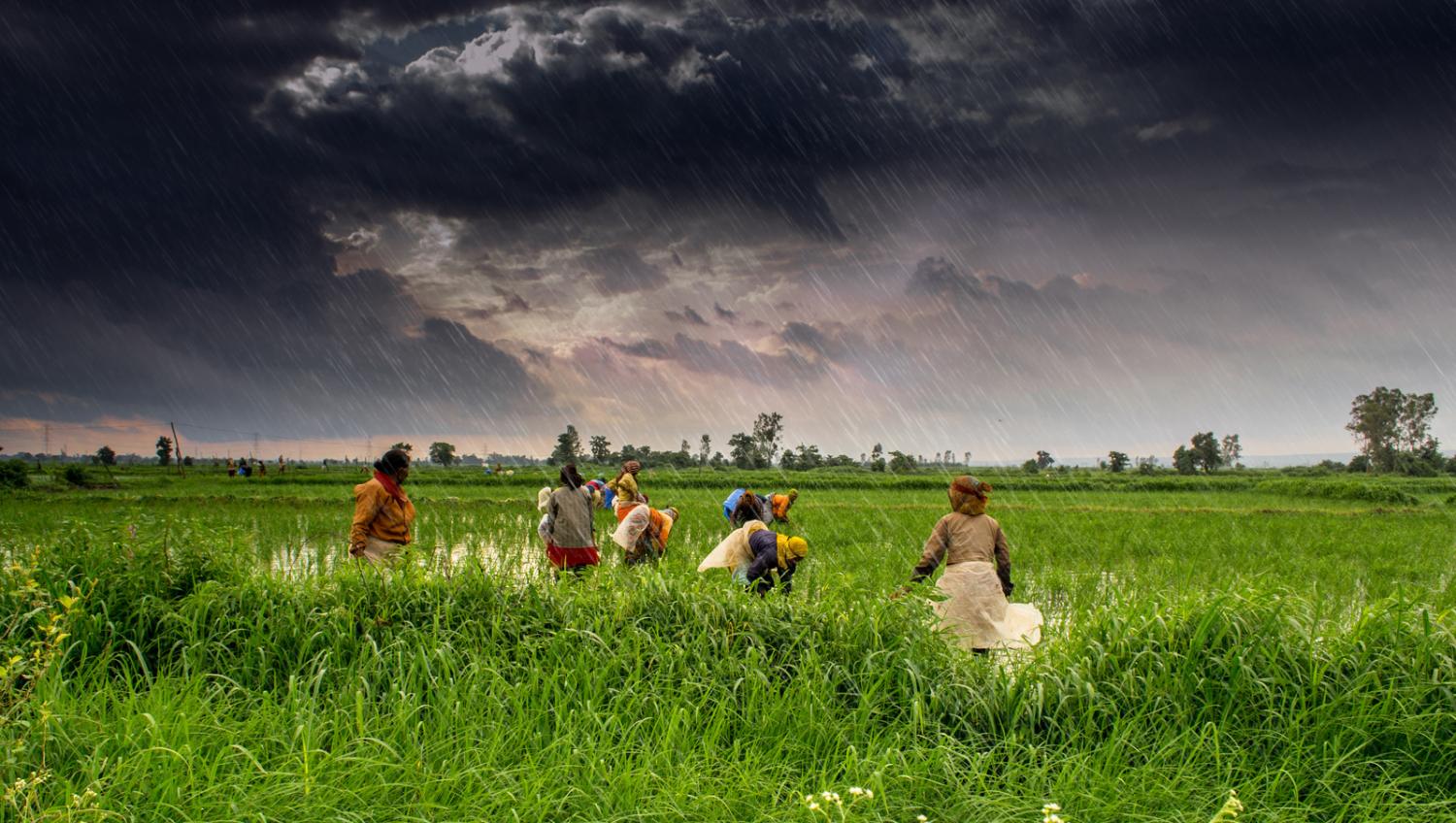
Our ancestors did not want Sukkot to end, so they added an extra day to this festival—one more day to linger over the joys the holiday offered. Our celebrations look quite different now, but we too appreciate this day—and the special prayers for rain associated with it.
A presence that bursts forth from the emptiness
A prayer for rain during the Amidah on Shemini Atzeret in memory of those fallen during the Yom Kippur War
A complete ritual featuring a prayer for rain, packing boxes of food for a food pantry, and an optional text study.
On Shemini Atzeret, Jews offer a special prayer for rain (it is the beginning of the rainy season in Israel). The traditional version of this prayer refers obliquely to each of the forefathers and their relationship to water; this version highlights the foremothers.
Women’s prayer for rain
Subscribe for the latest rituals, online learning opportunities, and unique Judaica finds from our store.